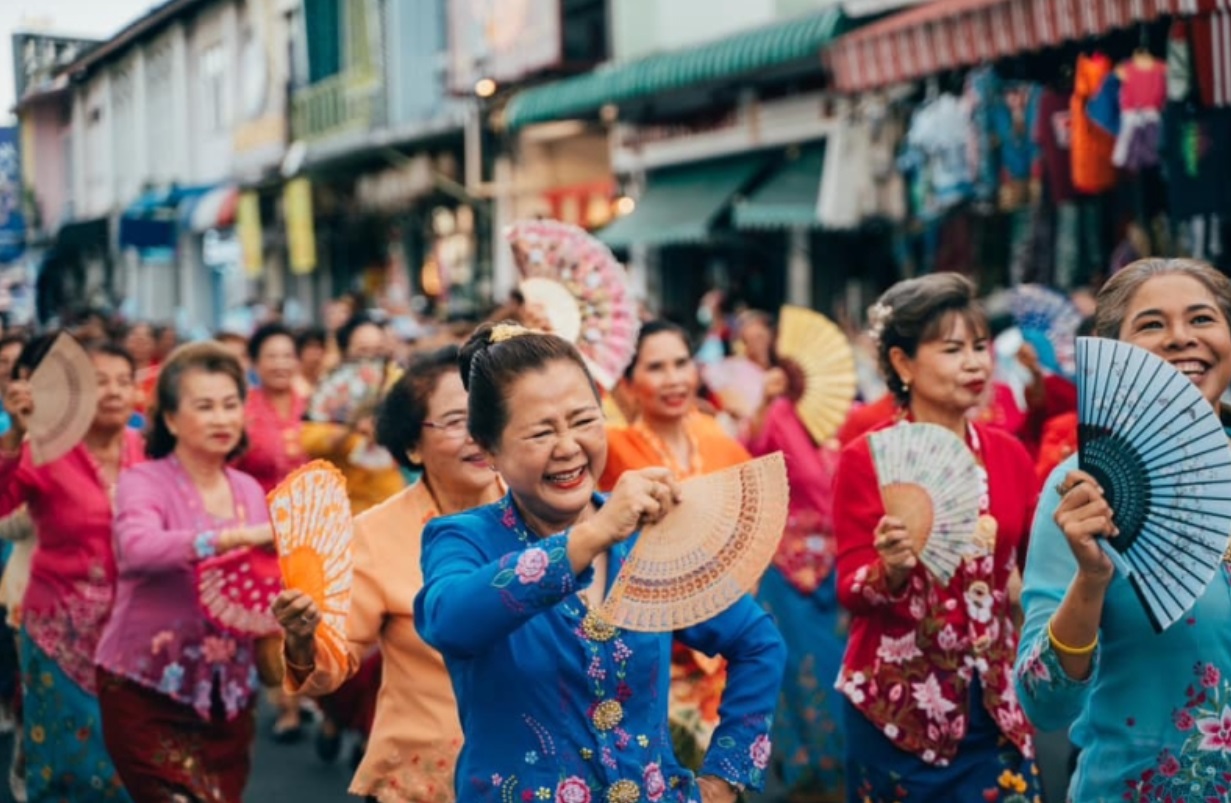The most visited island in Thailand, Phuket, is more than just its exceptional white sand beaches and azure blue waters. This sought-after tropical destination in the Andaman Sea is also a hotbed of different cultures, with many outside influences worldwide. Some of these influences include European cultures, Chinese, Malay, Indigenous, Islamic, and, of course, the impact of modern globalization.
However, one influence stands out among all others: the Peranakan culture on the island. Also known as the Baba Nyonya culture, Peranakan is a fusion of Malay and Chinese traditions, having created a unique identity in Phuket that’s seen in many aspects. From architecture to local cuisine, traditional clothing, and more, the Peranakan culture is one reason Phuket is a must-visit destination in Southeast Asia.
Related article: Phuket’s Best Beaches
The Influence of Peranakan Culture in Phuket
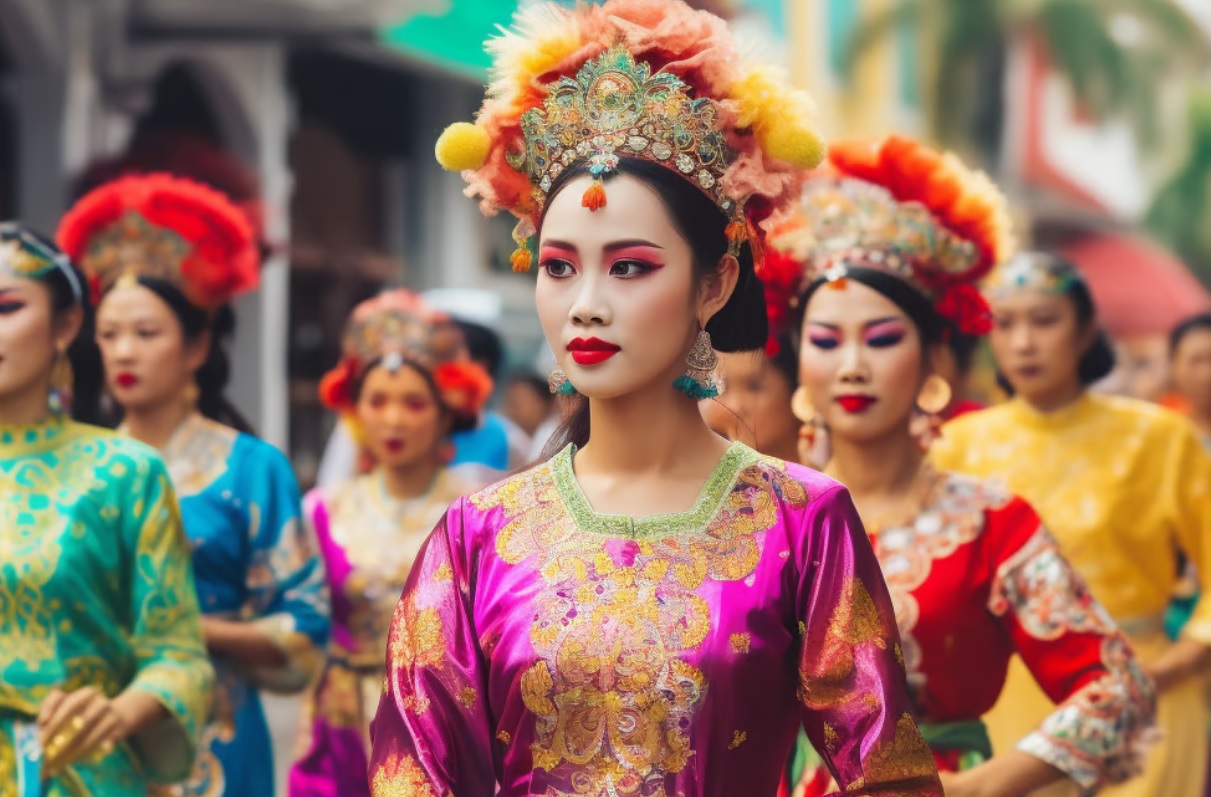
Peranakan culture in Phuket is based on the traditions of the Baba, male descendants of Chinese immigrants who settled on the island and married local women. Nyonya is the equivalent female version of the Baba. Predominantly of Hokkien origins, these unions created the Peranakan community, featuring the distinct identity of Chinese and Malay culture.
The Peranakan cultural influences are not only limited to Phuket but can also be found in Singapore and Malaysia, where Chinese and Malay traditions are evident. In Phuket, the influences are primarily found in the Old Town quarter, where Sino-Portuguese buildings line the streets, Asian fusion cuisine is offered in most cafes and restaurants, and many men and women of the community still don traditional clothing. 70% of the local Phuket population is believed to have Peranakan ancestral origins.
Let’s take a look at how the Peranakan culture created Phuket’s unique Chinese-Malay identity:
Architecture
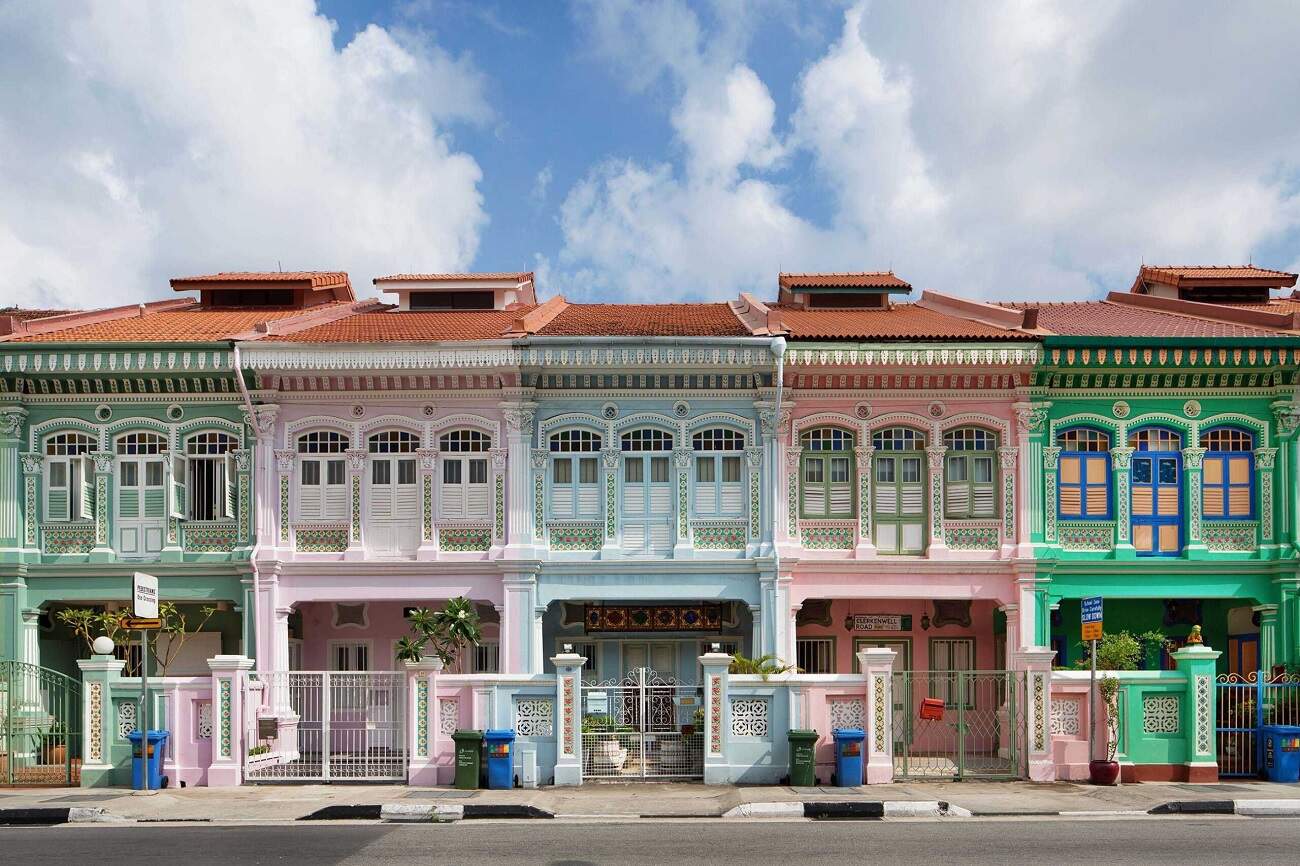
Phuket’s Old Town is famous worldwide for its distinct Sino-Portuguese architecture and colorful street art. During the 16th and 17th centuries, the island became a crucial regional trading hub, captivating merchants and traders worldwide. The Portuguese were the first Europeans to settle on the island, hiring Chinese workers to build their establishments and houses, thus creating an art style that’s uniquely Sino-Portuguese.
Characterized by narrow frontages, decorative facades, wooden latticework, and colorful two to 3-story buildings, the structures have been made into charming cafes, restaurants, and boutiques in the island’s Old Town quarter today.
Related articles: Exploring The Historical and Colorful Phuket Old Town, 5 Local Restaurants You Should Try When in Phuket, 5 Restaurants in Phuket with Great Views
Festivals
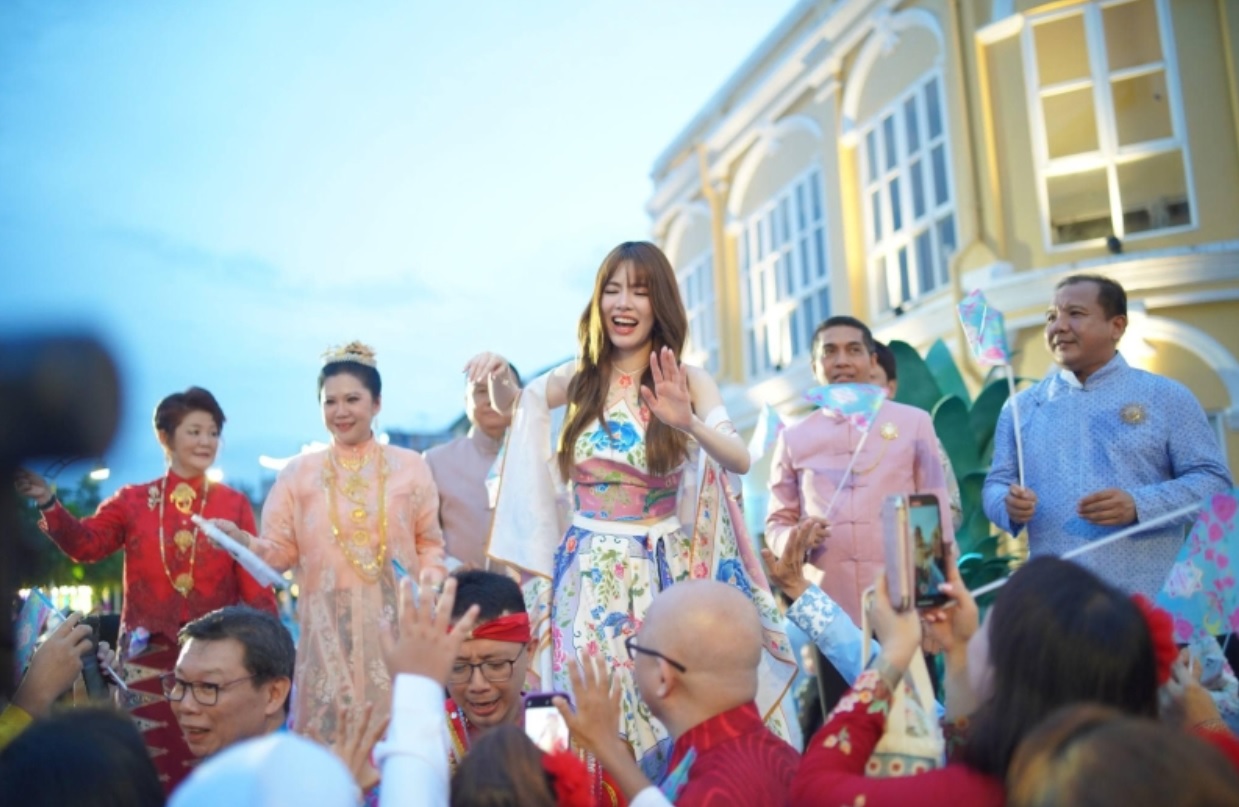
As with the rest of Thailand, Phuket is known for celebrating numerous festivals throughout the year based on historical, societal, and cultural contexts. One of the most popular festivals is the Baba Wedding Festival, held annually in February, highlighting the unique customs of Peranakan weddings.
Over a three-day event, tourists and visitors witness processions, music, dance, and various rites and rituals of the Baba Nyonya community. Traditional attire, local Baba cuisine, and performances are showcased, giving guests a glimpse of the distinct Peranakan culture on the island.
Related article: Phuket’s Most Popular Festivals and When They Happen
Traditional Clothing
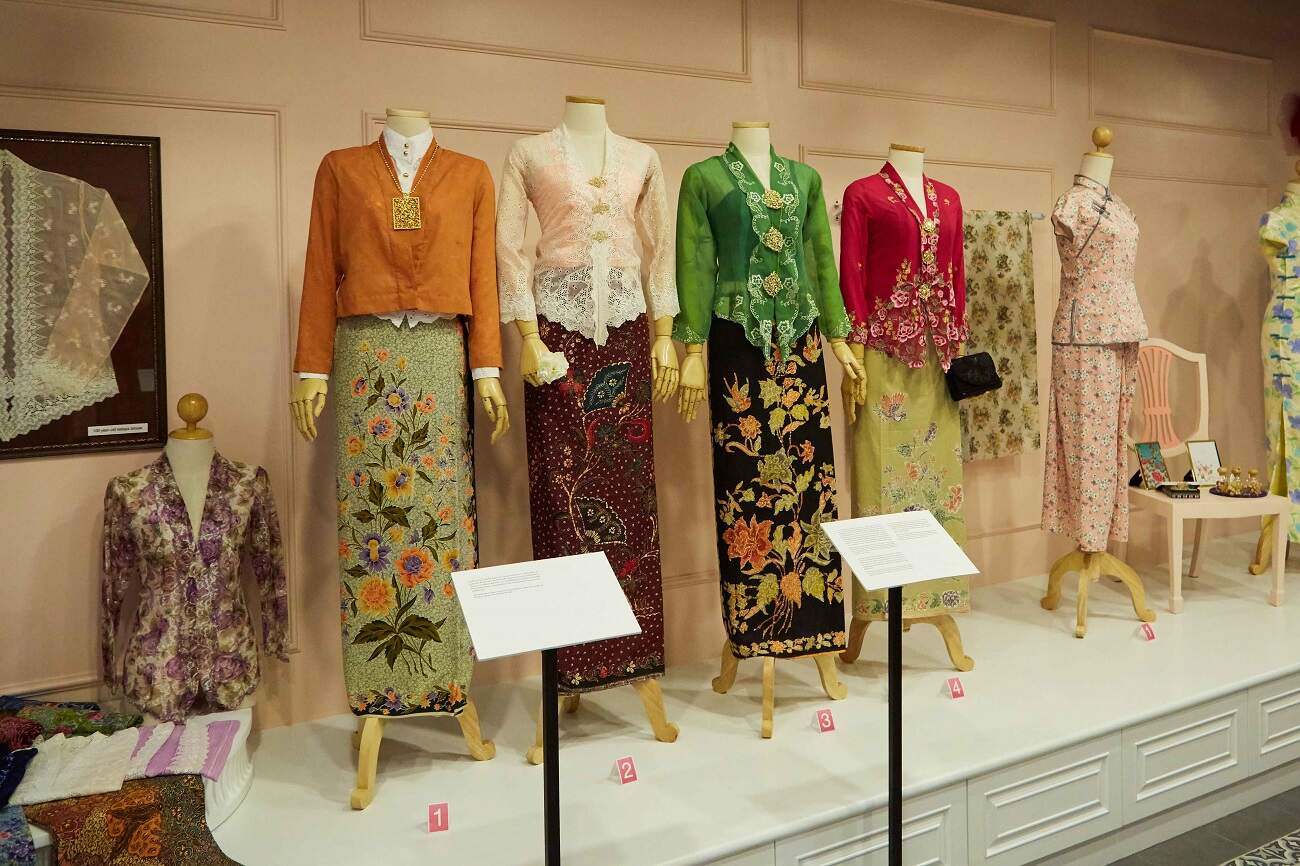
Distinct from traditional Thai garb, Nyonya women are known for donning their embroidered kebayas on the streets of Phuket. These kebayas feature intricately embroidered blouses paired with batik sarong wrap-around skirts and are usually accompanied by elaborate hairstyles, jewelry, and beaded slippers as footwear. Since the settlement of the Chinese immigrants in the 19th century, the Baba Nyonya community on the island has continued to wear traditional clothing daily and on special Peranakan occasions.
Related article: Embracing the Beauty of Thai Silk: A Tale Woven in Tradition
Food
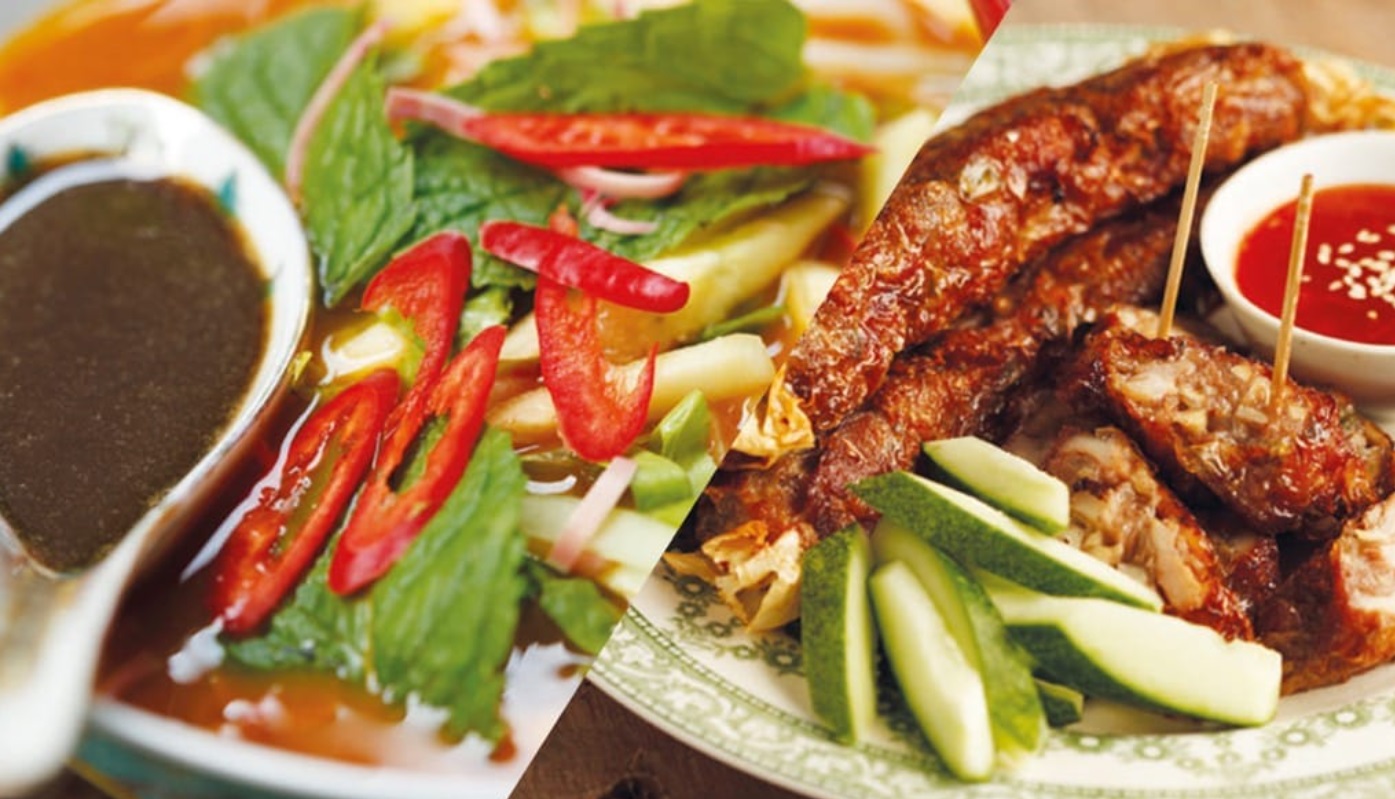
Peranakan cuisine is a wealthy blend of Chinese and Malay influences, where Chinese cooking styles are used to create dishes featuring Malay herbs and ingredients. Offering a fusion of Asian flavors while also showcasing local Thai ingredients, the result is a unique style of cuisine that reflects the island’s rich trading history and cultural exchange.
Some of the most popular Peranakan foods in Phuket include the laksa, which is a spicy noodle soup with coconut milk; otak otak, which is grilled fish wrapped in banana leaves; moo hong, which is salted boiled pork, and mee hokkien, which are stir-fried Hokkien noodles.
Most cafes and restaurants on the island’s Old Town area serve Peranakan cuisine, featuring dishes highlighting Phuket’s rich outside influences.
Related articles: Healthy and Hearty Cuisine: The Benefits of Eating Thai Food, The Best of Phuket Street Food, Thai Cuisine: 10 Must-Try Dishes When in Phuket
Final Thoughts
While the island’s stunning beaches, crystal blue waters, picturesque resorts and luxury villa rentals are the main draw of Phuket, it’s important to note that the island is more than just a tropical destination for beach holidays. It has a wealth of outside cultural influences that created its unique identity, as evident in its local Peranakan culture.
The heart of the community is found in the Old Town quarter. Still, its influence is spread all over the islands, giving tourists and visitors a unique understanding of Phuket’s history, culture, and traditions.
Immerse yourself in Phuket’s Peranakan culture, where you can experience the influence of Chinese and Malay traditions and discover the island’s rich history. Embark on an exciting journey of Baba Nyonya cuisine, architecture, art style, performances, and traditional clothing while reveling in the island’s stunning natural beauty.
Related articles: Beachfront Luxury Villas in Phuket, 5 Villas in Phuket You Want to Stay Before You Die, Finding the Best Luxury Villas to Rent for a Holiday in Thailand
–
Featured Image by The Phuket News

